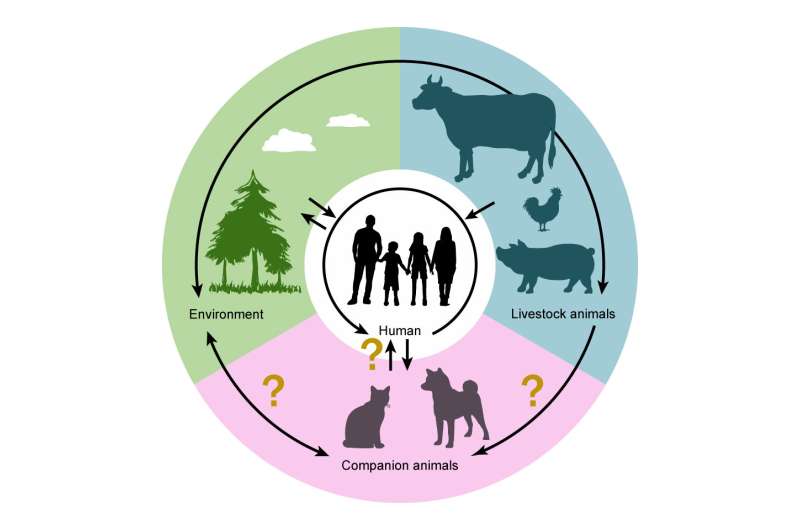This article has been reviewed according to Science X's editorial process and policies. Editors have highlighted the following attributes while ensuring the content's credibility:
fact-checked
trusted source
proofread
Companion animals could be reservoirs for cross-species transmission of antimicrobial-resistant bacteria

The emergence and global spread of antimicrobial resistant bacteria among companion animals (e.g., dogs and cats) pose a risk of the animals being reservoirs for cross-species transmission because of their close contact with humans.
In Japan, for the first time, a research team led by Associate Professor Mayo Yasugi from the Osaka Metropolitan University Graduate School of Veterinary Science discovered Escherichia coli resistant to both colistin and third-generation cephalosporin antibiotics in a companion dog.
Outside Japan, both colistin and third-generation cephalosporin-resistant E. coli isolates have already been discovered in companion animals. However, the number of reports is still low, and knowledge of the trends and in-depth analysis of the bacteria is limited. Therefore, there are still many unknowns regarding the nature and host-to-host transmission of the bacteria.
This study investigated 678 bacterial strains isolated from 428 dogs and 74 cats with suspected infectious diseases that were presented to the Veterinary Medical Center, Osaka Metropolitan University. Researchers discovered two E. coli strains carrying both a mobile colistin-resistant (mcr) gene and a third-generation cephalosporin-resistant blaCTX gene. One of these strains isolated from a dog was found to be resistant to both colistin and third-generation cephalosporins. The findings were published in Veterinary Microbiology.
According to Professor Yasugi, "From the perspective of 'One Health,' studies on antimicrobial resistant bacteria should be performed among not only humans but also surrounding animals and environment. We hope to contribute to elucidate the role of companion animals in cross-species transmission of antimicrobial resistant bacteria."
More information: Mayo Yasugi et al, Genetic and phenotypic analyses of mcr-harboring extended-spectrum β-lactamase-producing Escherichia coli isolates from companion dogs and cats in Japan, Veterinary Microbiology (2023). DOI: 10.1016/j.vetmic.2023.109695
Provided by Osaka Metropolitan University




















